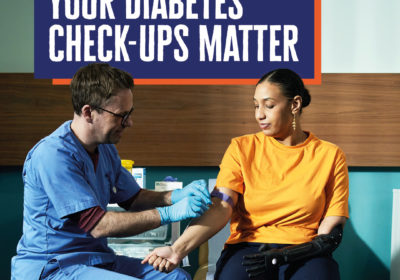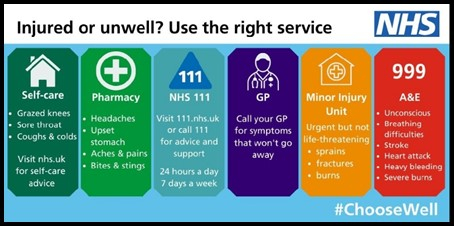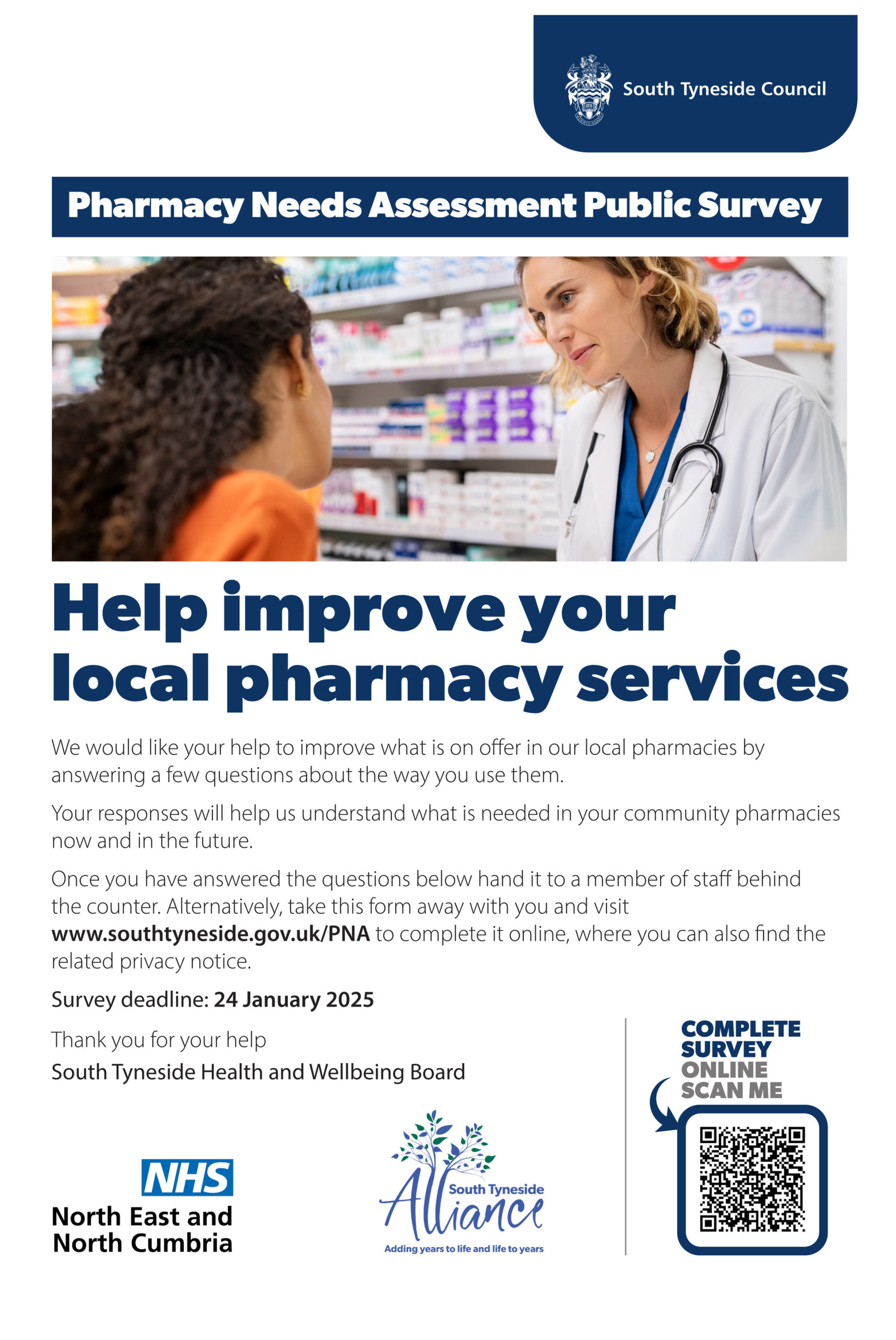
12.06.2025
The health checks all people with diabetes need to do
Early data from participating hospital sites across England shows that there were at least 573 calls made to escalate concerns about a patient’s condition deteriorating in September and October, including from patients, their family, carers and NHS staff.
Around half (286/573) of these calls required a clinical review for acute deterioration, with around 1 in 5 (57/286) of the reviews leading to a change in the patient’s care – such as receiving potentially life-saving antibiotics, oxygen or other treatment – while remaining on their current wards.
In addition, in the first 2 months alone, 14 calls made via the new Martha’s Rule initiative resulted in a patient needing urgent transfer to an intensive care unit.
Anecdotally the NHS is aware of other patients having been moved to high dependency units, coronary care units and other environments, such as returning to operating theatres or radiology, for interventions.
Of the 573 calls in total, 86 (15%) were from patients, 436 (76%) were from family, carers or designated advocates, and 51 (9%) were from NHS staff.
The NHS announced in May 2024 that 143 hospital sites would test and roll out Martha’s Rule in its first year as part of the major patient safety initiative.
The scheme is named after Martha Mills, who died from sepsis aged 13 in 2021, having been treated at King’s College Hospital, London, due to a failure to escalate her to intensive care and after her family’s concerns about her deteriorating condition were not responded to.
Merope Mills and Paul Laity, Martha’s parents, said: “We’re really pleased to see the immediate positive impact Martha’s Rule has made in the hospitals that have introduced it so far. It is our view that listening to the voices of patients and their families makes for the best and safest medicine.
“The early data suggests that Martha’s Rule isn’t being triggered inappropriately or overused. Were it to be implemented nationally, it would greatly improve care, help change the culture and save lives”.
Professor Sir Stephen Powis, NHS National Medical Director, said: “The introduction of Martha’s Rule represents one of the most important changes to patient care in recent years, and we are really encouraged to see the impact it is already having for patients in this first phase.
“This early data highlights just how essential the Martha’s Rule escalation process will be for patients, families and staff, to help ensure those experiencing acute deterioration can be identified and treated at the earliest possible opportunity.
“With 1 in 5 clinical reviews triggered by Martha’s Rule so far leading to potentially life-saving changes in care, this early insight suggests the initiative is starting to have a transformative effect in improving patient safety further – we are so grateful to Martha’s parents, Merope and Paul, for their campaigning and continued collaboration to help the NHS save more lives”.
Martha’s Rule is to be made up of 3 components to ensure concerns about deterioration can be swiftly responded to:
The initial target was to enrol at least 100 sites, but due to significant interest from frontline clinicians the programme was expanded, with the first phase of the programme being put in place at 143 locations across the country by March 2025.
Of the 143 hospital sites implementing Martha’s Rule in the first year, early data was returned by 136 sites, including 87 sites which have implemented an escalation process for patients and families so far, and 92 sites that have partially or fully implemented an escalation process for staff.
Evaluation of how the system works in these sites over the course of this year will inform proposals for Martha’s Rule to be expanded further across all acute hospitals, subject to future government funding.
Health and Social Care Secretary, Wes Streeting, said: “I thank Merope Mills and Paul Laity for their tireless campaign for Martha’s Rule: it is just a shame that it took such a heart breaking tragedy, and the bravery of Martha’s parents to speak out, for this change to be made.
“The roll-out of Martha’s Rule is already playing a role in building a safer NHS by putting patients and their families at the heart of discussions about their healthcare, and early indications are that it could have a transformative impact. This government is committed to making sure every patient is heard”.
Dr Aidan Fowler, NHS National Patient Safety Director and Senior Responsible Officer for the programme, said: “Thanks to the engagement and hard work of the 143 pilot sites, we are already seeing life-saving interventions from calls made under Martha’s Rule.
“In addition to providing a valuable failsafe to identify deterioration, this is increasing the sensitivity of our own monitoring as families and staff are very sensitive to changes in patients they know well”.
The introduction of Martha’s Rule comes alongside other measures to improve the identification of deterioration, including the rollout last November of a new early warning system for staff treating children.
The paediatric early warning system is built on similar processes already in place for adult, new born, and maternity services. Here clinicians are able to track potential deterioration by formally recording changes in vital signs like blood pressure, heart rate, oxygen levels and levels of consciousness, with different scores representing the level of concern.
This is all part of wider work to improve how the NHS uses data, better supports staff to manage deterioration, and see greater involvement from patients, families, and carers.
Source: https://www.england.nhs.uk/2024/12/marthas-rule-already-saving-lives-in-nhs-hospitals/
This comes as NHS bosses warned of an earlier-than-usual wave of flu and seasonal viruses which has led to a 70% increase in flu cases in hospital across just 7 days, as the health service heads into winter busier than ever, with the latest data showing record A&E attendances and elective appointments.
When the online booking services close, it will be more challenging for many to protect themselves against this infection surge.
From 20 December, you will no longer be able to book winter vaccinations online or via NHS 119, however, you can still visit a COVID-19 walk-in vaccination site or find a pharmacy offering the flu vaccine, but you may have further to travel further.
The flu and COVID-19 vaccines help to protect those at greater risk against severe illness and hospitalisations.
Latest data shows NHS staff have delivered a staggering 28 million vaccinations so far.
Still, with the latest data for flu showing a 38% increase in hospital admissions and an 80% increase in ICU admissions, there is still concern of a “quad-demic” impacting services this winter.
You can still call 119 free of charge if you need help finding sites still offering winter vaccinations.
Steve Russell, Chief Delivery Officer and National Director for Vaccinations and Screening at NHS England, said: “The NHS is heading into winter busier than ever before, and with a worrying, earlier-than-usual surge in seasonal viruses being seen, we’re now urging people to get vaccinated before it becomes less convenient on the 20 December.
“Vaccination is our best protection against the viruses that derail the things that we want to do, including starting our all-important New Year’s resolutions and seeing friends and family in the new year. It can also have a significant impact on our loved ones working in jobs that don’t provide sick pay.
“With just three days to go, we are now in the last chance saloon to book extra protection against ‘festive flu’ via the online service. It’s important to remember that after Thursday, you may have to travel quite a bit further to get jabbed, with appointments no longer in as convenient places like supermarkets or car parks.
“So, as our autumn vaccination programme closes, it’s important to come forward and get jabbed for yourselves and your loved ones.”
Minister for Public Health and Prevention Andrew Gwynne said: “Flu cases are putting a lot of pressure on the NHS, so it’s vital those eligible for the vaccine come forward to protect themselves and their loved ones.
“We’ve already seen around 28 million jabs delivered for flu, Covid and RSV, but we know there’s more to do.
“The best Christmas present you can give to your loved ones is to get vaccinated – book your flu jab today and protect yourself over the festive season.”
Susan Hopkins, Chief Medical Advisor at UKHSA, said: “With rates of flu increasing and winter vaccine uptake not yet reaching the high levels we aim for in some groups, it is vital that those eligible take up the free flu and COVID-19 vaccines before Christmas. Taking up the vaccine will prevent putting your seasonal plans in jeopardy – and more importantly, prevent the risk of severe illness and hospitalisation.”
All NHS frontline health workers have also been offered the COVID-19 and flu vaccines and encouraged to protect themselves and those they care for.
In line with advice from the Joint Committee on Vaccination and Immunisation, those currently eligible for a flu vaccine this year include:
Source: https://www.england.nhs.uk/2024/12/final-chance-to-book-jabs-to-avoid-festive-flu/
You are advised to telephone the pharmacy prior to attending. If you require advice out of hours, please contact: 111.

Christmas Day (Wednesday 25th December)
Boxing Day (Thursday 26th December)
New Year’s Day (Wednesday 1st January)
The Restart Integrated Domestic Abuse Service is South Tyneside’s specialist service offering support for everyone impacted by Domestic Abuse in South Tyneside. They can be contacted on 0800 254 5087 and their opening times over the festive period are:
Outside of these times please call the National Domestic Abuse Helpline 0808 2000 247 (24Hour) or in an emergency call 999.

A guide to help people get through the festive season has been published by the NHS North East and Cumbria and South Tyneside Council. Called ‘A Better U – The 12 Ways to Christmas’, the online brochure has tips and hints for those who may be alone or potentially vulnerable over the next couple of weeks. Download a copy here.
Survey forms have been distributed to all pharmacies in the borough and the questionnaire can also be completed online here
You can also access the online survey by scanning the QR code on the poster.
The Pharmaceutical Needs Assessment (PNA) looks at the current provision of pharmacy services across South Tyneside and whether there are any potential gaps in service delivery.
The Health and Social Care Act 2012 transferred the responsibility for developing and updating pharmaceutical needs assessments from Primary Care Trusts (PCTs) to Health & Wellbeing Boards with a requirement to publish the first PNA by 1 April 2015 and at minimum every three subsequent years.
The pharmaceutical needs assessment is used by NHS England in its consideration of applications to join the pharmaceutical list, and by commissioners of community pharmacy enhanced and locally commissioned services to make decisions on how to best meet the needs of the local population.
South Tyneside Health and Wellbeing Board said your responses will help it understand what is needed in community pharmacies now and in the future. For more information visit: https://www.southtyneside.gov.uk/article/8607/Pharmaceutical-Needs-Assessments
The closing date for responses is Friday January 24th.
National Voices, the leading coalition of health and care charities, are running this survey to provide the chance for patients to share their views of using medical devices and products.
If you or someone you care for has experience of using medical devices and products for the following types of care, then please complete this short survey to share your experiences: https://www.surveymonkey.com/r/medicaldevicesresearch
Whether you use wound care products, stoma appliances, catheters, incontinence appliances, or other medical devices, your feedback is important and helps make healthcare more responsive to patient needs.
By completing this short survey, you’ll help inform how medical professionals choose and prescribe devices, ensuring better outcomes for patients.
Currently, doctors, pharmacists, community nurses or dentists can prescribe from a list of over 60,000 medical devices, but many patients aren’t aware they can have a say in which devices work best for them.
The survey should only take approximately 15 minutes to complete, and you have until Friday January 10 to submit your response.
By completing this survey, you can let DHSC know:
National Voices will analyse the survey responses to explore whether there are any key themes around who is using these medical devices and products, and what their experiences of using these devices and products are.
National Voices will be including these key themes in a report for DHSC which will be published. This report will summarise which features patients find most valuable in the medical devices and products they use.
Your survey response will remain anonymous – no one will be able to tell who said what in this report.
Once complete in 2026, the new Eye Hospital will continue Sunderland’s proud legacy of providing specialist eye care for people across the North East and beyond.
It will house the region’s nationally renowned Cataract Treatment Centre (CTC), a 24/7 Eye Emergency Department and, for the first time, have a Day of Surgery Admissions (DOSA) unit. This is where patients coming in for surgery will have their procedure before being discharged home later that day.
There will also be dedicated facilities for children who will have their own waiting and recovery area. The new Eye Hospital will continue to support world-leading research and provide much improved education and training facilities for its own staff, as well as those training in the region and starting out in their NHS careers.
The new building will be completely paper free at the point of care as the Trust continues its work as one of the most digitally advanced Trusts in the whole NHS.
South Tyneside and Sunderland NHS Foundation Trust is working in partnership with Sunderland City Council and construction partner Kier to deliver the project.
To mark a year since work began on the former Vaux Brewery site, all three partners gathered for a topping out ceremony on the top of the new build.
Trust Chief Executive Ken Bremner MBE, Council Leader Cllr Michael Mordey and Regional Director Dan Doherty from Kier Construction each helped fill in the final gap in a block of concrete to complete that section.
Construction will now press on to add the roof to the building, while work has already started to add the panels to the side of the structure. Construction is also ongoing on the energy centre linked to the main hospital.
Trust Chief Executive Ken Bremner said: “This is a milestone day in our project to create a fantastic new eye hospital in Sunderland. It will see our outstanding eye services get the fit for purpose surroundings which reflect the hospital’s position as one of the country’s top specialist centres for eye care.
“It is a delight to stand side by side with our partners to mark this day and see the progress already made on the site. Thousands of people pass it every day and it’s been fascinating to see the build rise up from the ground.
“We can’t wait for that moment when we open its doors and welcome our staff, patients and their loved ones to facilities which will be modern, bright and fit for the future.”
Cllr Michael Mordey, leader of Sunderland City Council, said: “It is fantastic to see work progressing apace on this world-class facility, which once complete, will see Sunderland house the region’s only dedicated specialist standalone Eye Hospital.
“Caring for patients from across the North East and beyond, it is yet another fantastic development rising from the ground at Riverside Sunderland, which is fast becoming one of the UK’s largest and most ambitious urban regeneration projects of its kind.”
Dan Doherty, regional director for Kier Construction North and Scotland said: “We are incredibly proud to be part of this transformative project that will significantly enhance healthcare services in the region.
“This milestone marks an important step towards delivering what will be an outstanding hospital, designed to meet the needs of patients and staff alike.
“We look forward to continuing our work with South Tyneside and Sunderland NHS Foundation Trust and Sunderland City Council to bring this vision to life.”
The STS Charity, which is run by the Trust to support its staff and make patient experiences even better, is running a £1 million appeal to get additional kit and extras for the new hospital.
More details about how to donate, the kit the funds will be used to buy and the page where online cash support can be pledged can be found through the Vision Appeal page of the STS Charity section of the Trust website: Vision Appeal
For more information, visit: https://www.stsft.nhs.uk/our-charity/appeals-campaigns/vision-appeal
Latest news
Quick online NHS services